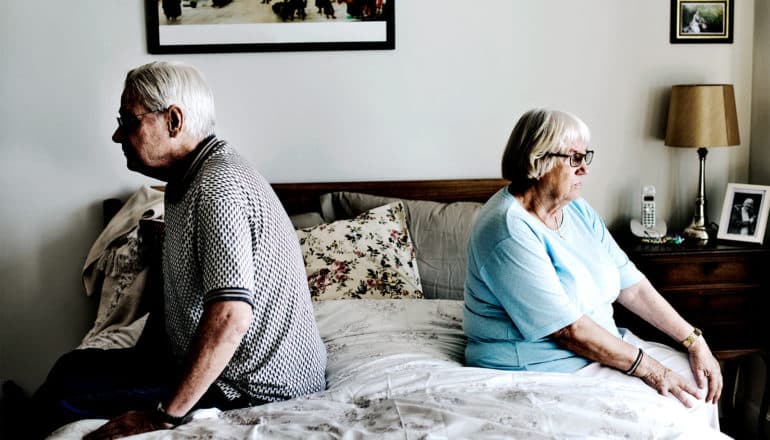
A spouse who needs caregiving for a chronic illness or disability can create stress for married couples, but that is even more true when husbands are the ones that need the care, researchers report.
A new study shows that, when compared to wives or men in non-caregiving relationships, husbands are vulnerable to negative exchanges with their spouses, such as criticizing or letting them down, due to guilty feelings and depression.
For the study, published in the Journal of Social Personal Relationships, researchers analyzed how negative spousal exchanges can have a major impact on caregiving couples and their mental health.
Studies like this one shed light on equity among older couples as they cope with changes in roles and responsibilities, says Berit Ingersoll-Dayton, professor emerita of social work at the University of Michigan.
For example, if one person receives more than they give, they may feel guilt and shame. When the opposite happens—more is given than received—caregivers may feel anger or resentment, she says.
Husbands show more depression
Researchers used data comparing three groups: couples who did not provide or receive care, couples in which husbands received care from wives, and couples in which wives received care from husbands. They tested for gender differences within more than 3,500 couples where at least one spouse was older than 51 years of age.
When compared with husbands who didn’t receive any care or those who provided care to their wives, care-receiving husbands showed more depressive symptoms. This may be because negative reactions from spouses cause husbands to feel that they are a burden, the researchers say.
For caregiving husbands, their work didn’t moderate the association between negative exchanges with spouses and depressive symptoms.
“Because spousal caregiving is not a traditional role for husbands, caregiving husbands often receive affirmation” when doing the work, as well as praise from others, says lead author Minyoung Kwak of Daegu University.
What about wives?
The researchers found no significant differences among wives in the effect of negative exchanges with husbands on the wives’ depressive symptoms across care status. The negative exchanges with husbands are similar for wives regardless of whether or not they are in a caregiving relationship, the study shows.
“Due to wives’ long-standing patterns of providing care in the family throughout the marriages, spousal care may not generate significant differences in exacerbating inequitable relationships among wives,” Kwak says.
That is, caregiving wives are less susceptible to the adverse effects of negative social exchanges with husbands than non-caregiving or care-receiving wives because they have already experienced and practiced caregiving duties in their marriage.
Source: University of Michigan
The post Depending on a caregiver spouse can make men feel like a burden appeared first on Futurity.
from Futurity https://ift.tt/371n2yj
No comments:
Post a Comment